#mediaX2017 Conference: Sense-Making & Making Sense
#mediaX2017 Conference
April 20, 2017 9am-5pm
Sense-Making & Making Sense
Technology augments our sense-making – helping us filter signals, manipulate data and create representations. How does the interactive human-machine sense-making process work? How might technology align with human scale, timing and representation to make it work better? How might human fundamentals help us create technologies that will enhance the human experience?
On April 20th, the #mediaX2017 Conference will delve into the human mind as a sense-making organ, keeping as context the whole body, the whole person, in community. The communication and social sciences are already in fast pursuit of key questions, fueled by massive data. The learning, cognitive and neurosciences are entering a period of accelerated development. We start with people – how they sense, feel, think and learn.
We’ll apply knowledge about human sense-making to our explorations of sensors and signals, information processing, analysis, and reasoning by machines. Fast-moving research at the cutting edge of visual, audio and haptic technology development provides insights on new ways to deliver input to the human senses for sense-making.
We’ll add several dimensions of humanity to the human-machine interface in order to leverage both sides of the sense-making question. We’ll scale up to integrate findings from several fields and develop a unified understanding with broad applicability in complex settings. We’ll scale down to articulate fundamental phenomena and explore them with disciplinary rigor. Each lens produces a unique perspective.
With multidisciplinary resources drawn from Stanford University and horizon questions of global importance contributed by our member organizations, inquiring minds in the mediaX community are continually asking and answering, giving feedback and receiving it, in pursuit of discovery, always learning.
Join us on April 20th as we share what we know and develop new discovery collaborations.
Presenters
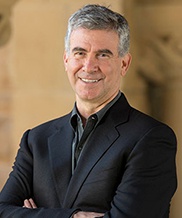
Daniel Schwartz is Dean of Stanford Graduate School of Education and an expert in human learning and educational technology. Schwartz oversees a laboratory whose computer-focused developments in science and math instruction permit original research into fundamental questions of learning. He has taught math in rural Kenya, English in south-central Los Angeles, and multiple subjects in Kaltag, Alaska. This diversity of experience informs his work. Among many honors, Schwartz was named Graduate School of Education Teacher of the Year for 2015.
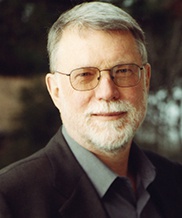
John Seely Brown (JSB) is a visiting scholar and advisor to the Provost at the University of Southern California (USC) where he facilitates collaboration between the schools for Communication and Media and the Institute for Creative Technologies (ICT). He is also the Independent Co-Chairman for Deloitte’s Center for the Edge where he pursues research on institutional innovation and a reimagined work environment built on digital culture, ubiquitous computing, and the need for constant learning and adaptability. A master integrator and instigator of productive friction, JSB explores the whitespace between disciplines and builds bridges between disparate organizations and ideas. JSB was the Chief Scientist of Xerox Corporation until April 2002 as well as the director of the Xerox Palo Alto Research Center (PARC) until June 2000.
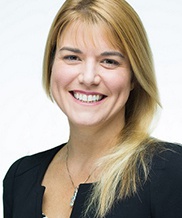
Amy Kruse is the Chief Scientific Officer of the Platypus Institute, an applied neuroscience research organization that translates cutting-edge neuroscience discoveries into practical tools and programs which enhance the human experience. Dr. Kruse’s primary focus at the Platypus Institute is a project entitled “Human 2.0” – a multi-faceted initiative that helps selected individuals and teams leverage neurotechnology to generate meaningful competitive advantages. Her ultimate goal with the Human 2.0 project is to create a vibrant, widespread neurotechnology industry that allows humanity to upgrade the human brain and, thereby, the human condition.
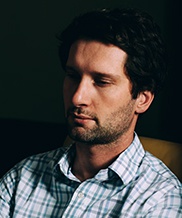
Michal Kosinski is an Assistant Professor in Organizational Behavior at the Graduate School of Business, Stanford University. Kosinski’s research has had a significant impact on both academia and the industry. His findings featured in The Economist, inspired two TED talks, and prompted a discussion in the EU Parliament. In 2013, Kosinski was listed among the 50 most influential people in Big Data by DataIQ and IBM, while three of his papers were placed among Altmetrics' “Top 100 Papers That Most Caught the Public Imagination”.
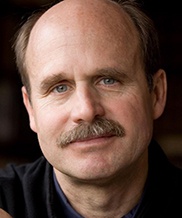
Paul Saffo is a Silicon Valley-based forecaster with three decades experience helping corporate and governmental clients understand and respond to the dynamics of large-scale, long-term change. He teaches forecasting in the Engineering School at Stanford, and is chair of Future Studies at Singularity University. Paul is also a non-resident Senior Fellow at the Atlantic Council, and a Fellow of the Royal Swedish Academy of Engineering Sciences. Paul holds degrees from Harvard College, Cambridge University, and Stanford University.
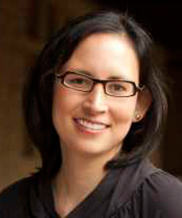
Allison Okamura is a Professor in the mechanical engineering department at Stanford University, with a courtesy appointment in computer science. She was previously Professor and Vice Chair of mechanical engineering at Johns Hopkins University. Her research focuses on developing the principles and tools needed to realize advanced robotic and human-machine systems capable of haptic (touch) interaction, particularly for biomedical applications. Haptic systems are designed and studied using both analytical and experimental approaches.
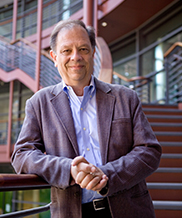
Bill Newsome is an Investigator of the Howard Hughes Medical Institute and Professor of Neurobiology at the Stanford University School of Medicine. Dr. Newsome is a leading investigator in systems and cognitive neuroscience. He has made fundamental contributions to our understanding of the neural mechanisms underlying visual perception and simple forms of decision making. Newsome recently co-chaired the NIH BRAIN working group, charged with forming a national plan for the coming decade of neuroscience research in the United States.
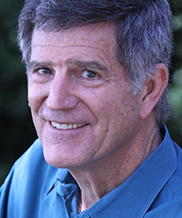
Kendall Haven is the only U.S. Military Academy at West Point graduate to turn professional storyteller. Now a master storyteller, Haven has performed for over 6 million worldwide during his 30 year career and has led the research effort for the National Storytelling Assn. and International Storytelling Center into the architecture of effective story structure and into the process of story-based influence and persuasion. Haven was the only storyteller or story writer recruited as part of the recent U.S. Department of Defense DARPA research program to explore the cognitive neurology of how stories exert influence.
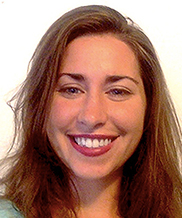
Megan French is a PhD student in Communication at Stanford. She is interested in how people understand online environments and how one's perceptions affect the way they engage and relate to others within cyber-social systems, such as social networking sites, online dating sites, and peer-to-peer platforms. Her work focuses on people’s expectations surrounding their interactions online, including expectations for response when posting on social media, as well as people's beliefs about the role of algorithms, such as the Facebook News Feed, in mediating those online interactions.
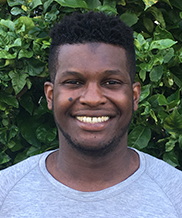
Leonard Medlock currently serves as a Director at EdSurge, where he leads the Concierge program, a match-making service between K-12 schools and districts and education service providers. As a former researcher in Stanford's Project Based Learning Lab, he has explored and published work on the ways in which teams of knowledge workers collaborate and engage in global, distributed settings. Leonard also teaches graduate courses on designing for social impact at Claremont Lincoln University.
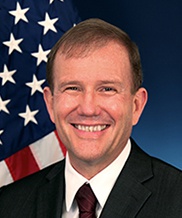
Brian Pierce is the Deputy Director of DARPA’s Information Innovation Office (I2O). This is Dr. Pierce’s second tour at the agency, having served as the deputy office director of the Strategic Technology Office from 2005 to 2010. Dr. Pierce has almost 30 years of experience developing advanced technologies in the aerospace/defense industry. Prior to joining DARPA, he was a technical director in Space and Airborne Systems at the Raytheon Company. From 2002-2005, he was executive director of the Electronics Division at Rockwell Scientific Company.
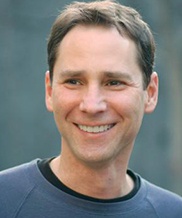
David Sirkin is a Research Associate at Stanford University’s Center for Design Research (CDR) and Lecturer in Electrical Engineering, where he teaches interactive device design. At CDR, Dr. Sirkin focuses on design methodology, as well as the design of physical interactions between humans and robots, and autonomous vehicles and their interfaces. Dr. Sirkin frequently collaborates with, and consults for, local Silicon Valley and global technology companies including Siemens, SAP and Microsoft Research.
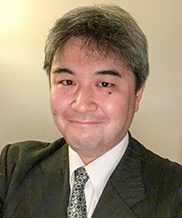
Ryota Yamada is an Expert of Open Innovation Initiative, Technology and Intellectual Property H.Q., OMRON Corporation. Ryota joined OMRON in 2002 as an Software Engineer. From 2003 to 2006, Ryota was a Visiting Researcher of mediaX at Stanford University. In that role, he worked with Prof. Cliff Nass on designing and implementing Socially Intelligent Agent technology which improve the performance of human. After he go back to Japan, he involved in the research and development of web communication systems for experts in factory and wireless sensor network systems.
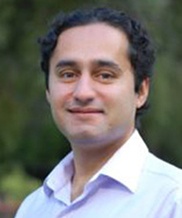
Ajay Chander leads R&D teams in imagining and building new human-centric technologies and products. His work has spanned digital healthcare and wellness, software security, and behavior design. Currently, Dr. Chander directs the Digital Life Lab at Fujitsu Labs of America, which builds solutions that acknowledge and leverage the “humans-in-the-loop” in an increasingly digitally dense world. At Fujitsu, Dr. Chander also provides technical and thought/strategy leadership for all aspects of the interplay between technology and the human experience, with a focus on human-centric systems and solutions.